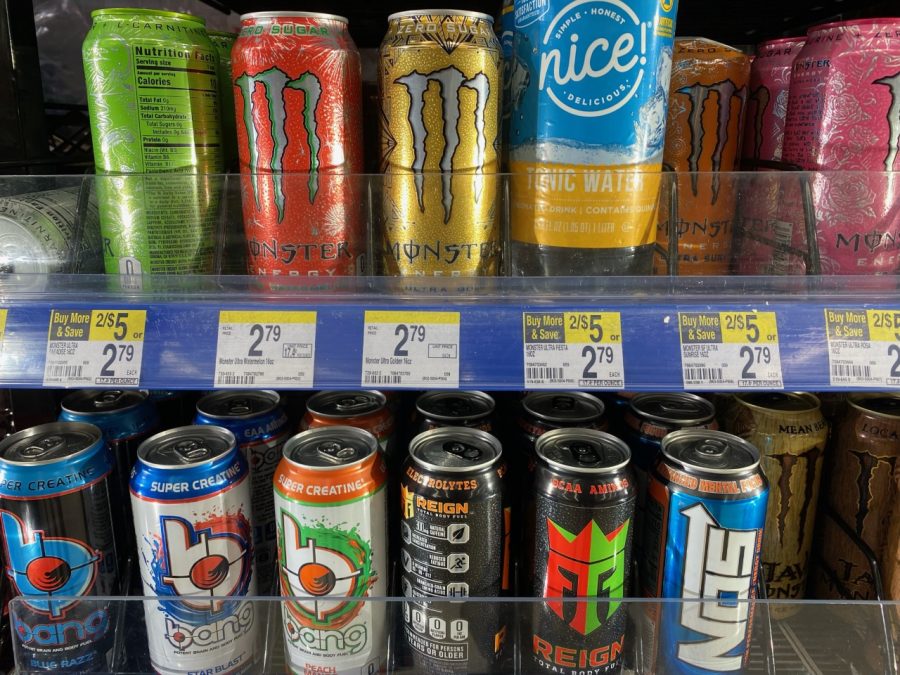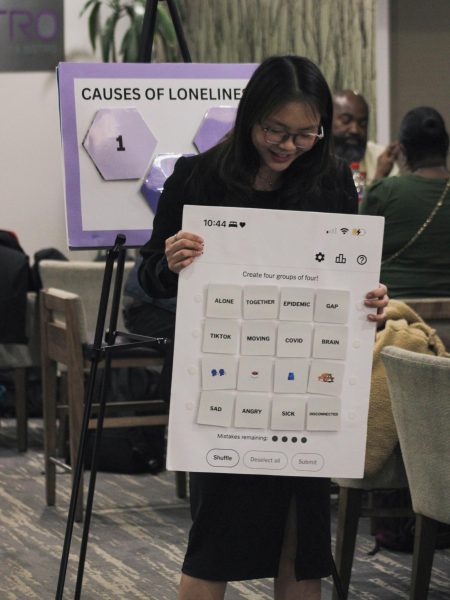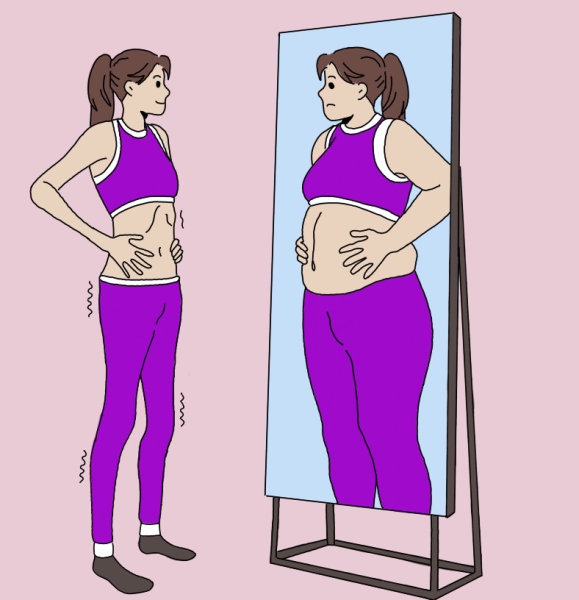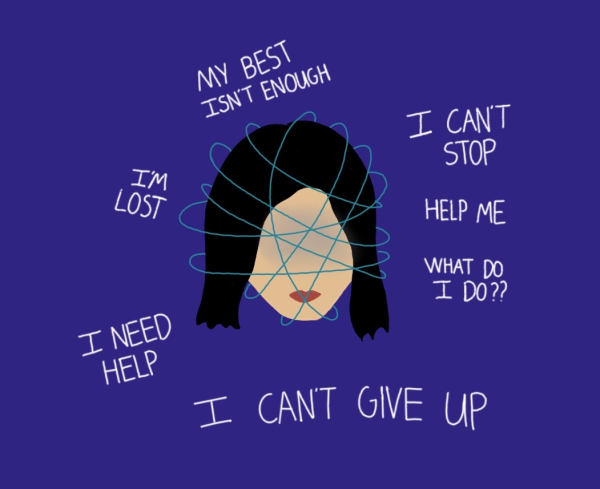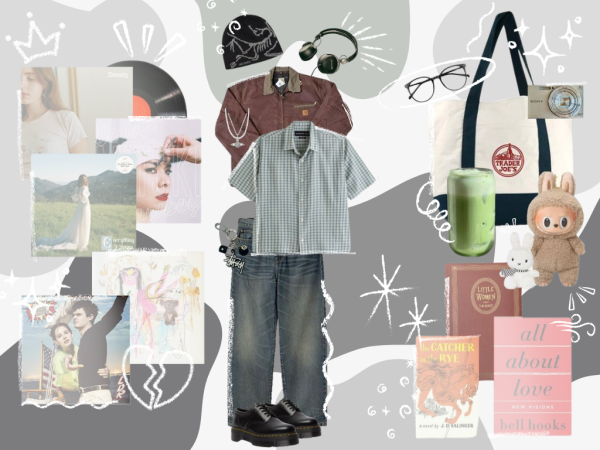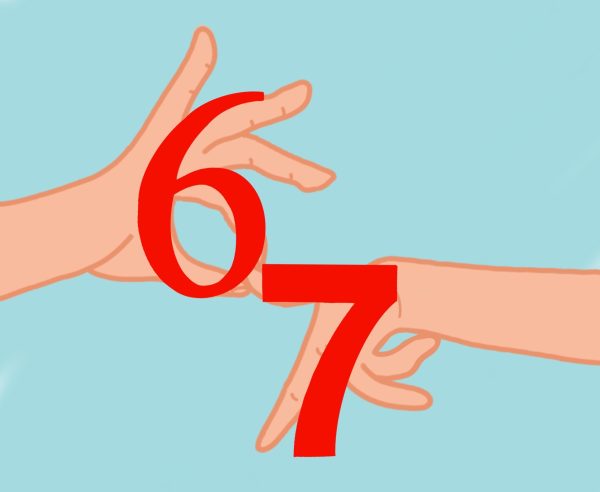‘Honestly my saving grace’
Caffeine in energy drinks can be a real head Bang-er
Energy drinks range in varieties of flavors. Energy drinks like Bang and Monster generally cost around an average of $3 individually.
Energy drinks are “lifesavers.” Most students who have stayed up all night doing an assignment know this. But these caffeine packed beverages are double edged swords.
And the edge facing towards us is a lot sharper than the one being used to temporarily cut down our exhaustion.
“I drink energy drinks because I have way too much homework and no motivation, so I barely sleep at night,” sophomore Grace Cruz said. “Then when I get to school, I get really tired, but I still have to attend [soccer] practice after [school]. I have energy drinks pretty regularly to keep me awake.”
According to nutritionists, teenagers are recommended to limit themselves to 100 mg of caffeine per day. But even small amounts of caffeine, lower than what is recommended by nutritionists, can cause caffeine addiction for the simple task of keeping their eyelids open.
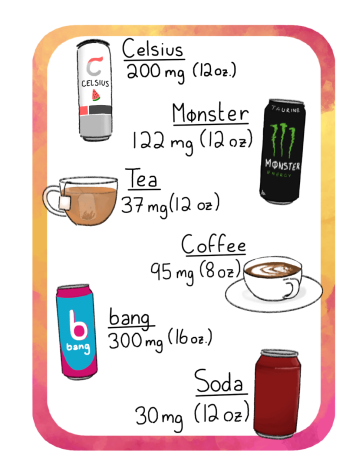
But if energy drinks make us prone to addiction, why do we continue to drink them?
Students who consume energy drinks often do so to focus in class or sports. This is because caffeine in energy drinks heightens their alertness and improves reaction time by blocking adenosine receptors. These receptors regulate sleep schedules and blocking them reduces fatigue.
After maintaining a regular caffeine intake, a person’s body will gain tolerance to their “caffeine limit,” which could then lead them to drink in excess.
Consistently consuming too much caffeine (about 5,000 mg daily) can send anyone to the hospital for overdose and a risk of death. Cutting back or withdrawals on caffeine can cause anxiety, trouble sleeping, raise blood pressure and irritability. Having a caffeine addiction can amplify the symptoms.
For any person who has an unhealthy caffeine drinking habit, a good way to begin drinking less caffeine is to cut back on consumption by drinking half of their regular intake per week. One can also interchange caffeinated and decaffeinated drinks, like decaf coffee, tea or soda.
While choosing decaf doesn’t rule out caffeine in a drink (meaning if there is 15 mg or less in an eight oz cup) it still can lower the body’s caffeine craving.
Turning in your assignments, making sure you meet deadlines, and staying active for the sake of your team is important. But when doing so directly affects your wellbeing in a significant way, you need to take a step back and ask yourself if chugging down another can of an energy drink is the best idea.
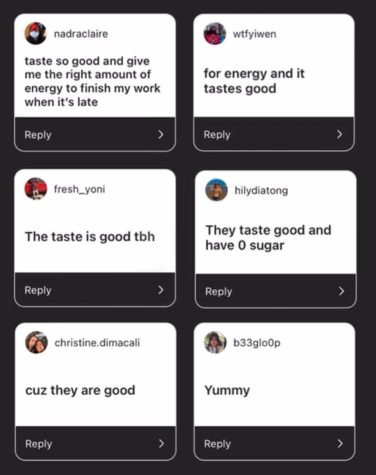
Our health is, and always should be, something we look after because it impacts our everyday lives and our future.
Student opinions on energy drinks
“Saving grace, honestly my saving grace,” sophomore Grace Cruz said about energy drinks.
According to an energy drink questionnaire on Instagram, 39% of 136 Bellaire students drink energy drinks. The most popular energy drinks at Bellaire are Bang, Celsius, Redbull and Monster.
“If it’s a good day, it’s one [Celcius] a day, if it’s a bad day, maybe two: one Bang, or if I’m having Celcius, I’ll probably have two Celcius,” sophomore Grace Cruz said.
On the poll, students said that their drinking habits range from seldom to everyday. Students say they drink energy drinks often because of the tiredness they feel from school work. Sophomore Michael Goldman said he drinks energy drinks to reduce his ADHD flare-ups.
Students like Cruz said that the primary reason she drinks energy drinks is because of her very particular choice of flavor.
“The best Celcius flavor, hands down, is either Kiwi Guava or Orange because it tastes like Crush soda,” Cruz said. “Bang!, Rainbow Unicorn all the way. Pina colada, savior.”
Your donation will support the student journalists of Bellaire High School. Your contribution will allow us to purchase equipment and cover our annual website hosting costs.


